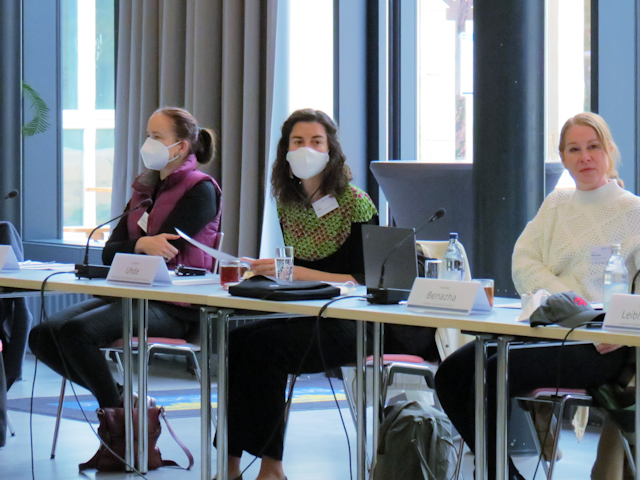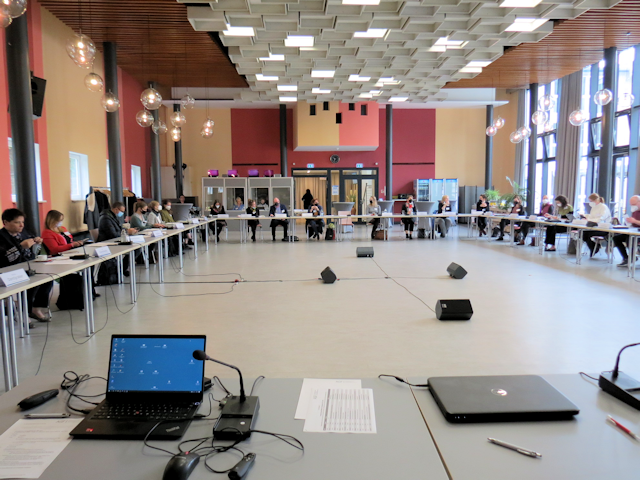
Report:
Background
On 23 September, the AGF held a European expert discussion on the ambivalences that arise from so called “live-in” arrangements to support people in need of care in their home. The perspectives of those in need of care, their relatives as well as the situation of the care workers and their families in the sending countries were intensively considered.
About 35 experts from European countries came together to discuss the family policy challenges posed by the care and nursing of elderly people in private households by (predominantly female) care workers from abroad in the form of so-called “24-hour care” or live-in arrangements.
Not only do the predominantly female workers have insufficient protection under labour law, but from the perspective of family policy, there is also the fact that the women in their home countries often have underage children or relatives in need of care themselves, whose care they cannot take care of during the assignments in private households, which can sometimes last weeks or months.
Despite the well-known critical situation of care workers, live-in and 24-hour care arrangements are perceived by many families with elderly relatives in need of care as a positive care alternative. One of the reasons for this is that the formalised/official outpatient care services are not considered to be sufficiently tailored to the specific needs of those in need of round-the-clock care. In part, however, it is also simply financial considerations that make families resort to the support of precarious care/household workers.
The expert discussion, with its opening statements and numerous contributions to the discussion, offered the opportunity to give these different perspectives a voice and to look for possible solutions. Important questions were:
- What is the situation in the households of older people in need of care who practise live-ins? What problems exist in providing care that meets their needs?
- What is the situation of care workers in live-ins? What are the motivations of the care workers? What problems exist in the live-ins?
- What repercussions does employment in live-ins have on the families of care workers in the sending countries?
- What (family) political demands can be derived from this at national and EU level?
Program
The course of the discussion (introductory statements and discussion):
- The European care border regime: inequalities and marketisation of care
Dr. Zuzana Uhde, Czech Academy of Sciences, Institute of Sociology - Live-ins as a care model: Spotlights on the perspectives of care workers Justyna Oblacewicz, Fair Mobility
Perspectives of families with older people in need of care on live-ins
- “Deficits/vacancies in care provision and live-ins
Ulrike Kempchen, BIVA, Federal Interest Group for the Elderly and People in Need of Long-Term Care
Perspectives of families in the sending countries
- “Effects on families in the countries where care workers are posted”.
Silvia Dumitrache, Associazione Donne Romene in Italia – ADRI
- “Transnational care work across continents – the example of Spain”.
Magdalena Díaz Gorfinkiel, Universidad Carlos III de Madrid
Necessary regulations of live-ins
- “Experiences with different legal regulatory mechanisms” Michael Leiblfinger, Johannes Kepler University Linz and LeiblfingerResearch
- “Trade union experiences and perspectives”
Dietmar Erdmeier, ver.di
Discussion on policy recommendations from a national and European perspective
